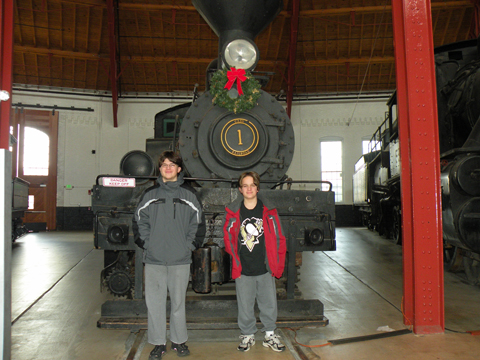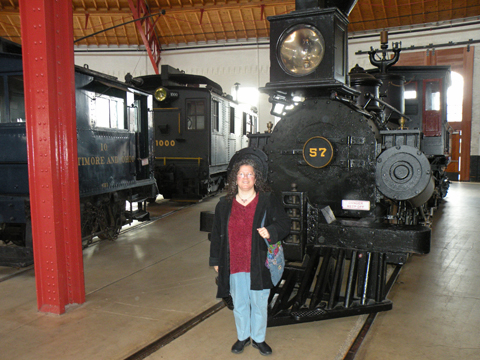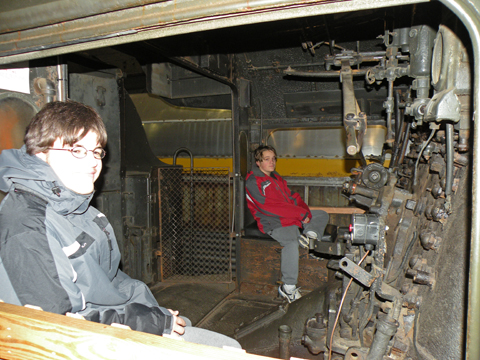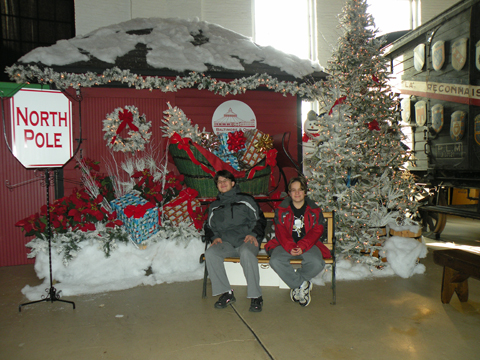By Gabrielle Calvocoressi
I thought I would write to you about the bombings
Of all those churches and temples in the South.
But instead I took a corner and there
Like the sun I wake to in this distant city
A boy resplendent in his yarmulke and Lakers
Jacket. It has happened before but we are almost
Champions now. In the arena, on the radio,
On every school bus there is the song of our city
Winning something. He was no higher than
My chest, heaving from a run as I tried to burn
Off a night of restless dreams. I thought
I would write about the people standing on the corners
In the midst of all that rubble and destruction
But here are the fathers carrying their sons to shul
And my legs are moving like I always dreamt they could.
If I talk to you amidst all this traffic and choose
To speak of joy instead of the suffering of so many,
People laughing in the streets: Shenandoah, La Cienega,
Doheny with its schools and girls in their long skirts
Does it make this less of a poem? How do we make a world
When so many don't want us here? Here are the boys
In their black suits and golden jackets. Here are the hills
Dry from months with no rain. Here I am learning
To read again. We sound the alarm and it is as sweet
As it is sorrowful. Our hands are in the air. We are running.
We are using our legs. We are holding buckets of water
And bright flags. We wear jerseys with the names of temporary
kings upon them. We are breathing. We are breathing.
We are almost champions now.
--------
"In the spring of my 13th year, my mother took her life...she had been ill my whole life and was, in some ways, a ghost the entire time I knew her," writes Calvocoressi in Poet's Choice. "What was it she wanted that I wanted too? Often the answer was: for God to hear me." Calvocoressi's book Apocalyptic Swing, in her words, "contains faith and violence and all manner of music. One of those poems, 'Temple Beth Israel,' takes its name from a synagogue that was bombed in the summer of 1964. It considers faith and doubt co-existing in a world that does not welcome all of us. It is a letter about learning and risking joy in the face of tremendous loss. A love letter to a world in which faith and hope are unconquerable because they are boundless."
After lunch on Saturday we drove to Baltimore, because the Maryland Zoo is closed this month and made a deal with the B&O Railroad Museum to admit its members for free. Right now their holiday model train displays are still up inside the roundhouse, where several of the historic engines and cabooses are also decorated for the season. We went to visit several of those, plus to see the model train displays (O and N scale inside, S scale outside) and visited the exhibits in retired train cars outside plus the North Car Shop, where trains in need of repair are kept (though the two historic engines badly damaged when the roof collapsed during a snowstorm are still in the roundhouse, surrounded by plexiglas). There were short films in some of the train cars, including a toy train video directed at young children which had my family howling at how bad it was (Talking cow: "What's the name of my favorite singer? Mooo-donna!") Since we weren't far from her new digs, we also went to visit Hufflepants, who was busy painting the walls of her lovely home.

My kids in front of an engine adorned for the winter holidays.

And me in front of another old engine.

Meanwhile, in the center of the roundhouse...

...was a massive O scale model train display of Baltimore and surrounding areas.

There was an N scale miniature as well, with the Bates Motel from Psycho and a burning house.

Here are my kids at the controls of one of the trains in the North Car Shop...

...and on the bench reserved for Santa when he was available to take photos. The World War I-era boxcar behind them was a gift from the French National Railroad to the State of Maryland in gratitude for assistance to the people of France.

The large outdoor model train display had been turned off, possibly because it was too cold to keep it running.
I'm of a double mind about "The End of Time." In all honesty, I expected a bloodbath -- given RTD's history so far, I was quite sure that lots of characters I cared about would die -- and after seeing the Doctor kill all the Daleks at the end of the last full season, really, genocide had to be on the table or the stakes would have been lower. So part of my reaction is pure relief at all the things that could have happened, yet didn't, plus delighted surprise at how much humor the episode managed to mix in with pretty much non-stop action during its first 45 minutes. But my reaction to what is essentially a tragic story wasn't muted by humor so much as by numbness, in the end. We've known since David Tennant joined the show that, like Christopher Eccleston, Paul McGann, et al, he would eventually pass on the role to another actor. Admittedly, I haven't seen all the transitions, but if most of them follow this model rather than the passing of the torch from Nine to Ten, I think that's a blessing.
Spoilers: Starting from the beginning, I was pleased with "The End of Time" -- the producers had hinted that we might get to see the end of the Time War in one of the 2009 specials, which I thought meant a flashback, but I guess we did conclusively see its grand finale. And it's a nice twist that the Daleks weren't the ultimate enemy the Doctor had to destroy but his own people...even though it's yet another example of the Doctor committing mass murder in the name of saving the universe, even though he's playing god just as surely as Timothy Dalton (who's both brilliantly cast and enormously fun as Emperor Palpatine). When [Rasselon -- what was his name? I refuse to call him The Narrator] announces, "I will not die!", he sounds as though he could be the future of the Doctor, who tries to get out of it in every way possible, even though he's going to regenerate and I don't understand why it's such a big deal to this incarnation of the Doctor beyond his enormous ego that he'll transform, given how fearlessly Nine accepted his fate.
I'm utterly confused about how the time lock works; I know that "when are the Time Lords" is the wrong question since they exist beyond linear time, but when Timothy Dalton exclaims, "Finally!" when the Master makes contact from Earth, why has he had a sense of time passing since he tossed the diamond through the vortex, and how come only then does he get up to take the vote about whether to end the universe? The prophet seemed so Battlestar Galactica to me that I loathed her in principle -- they could have had a calm scientific reporting of what was to come, they see time from every direction, they didn't need a crazy woman reciting and tapping and wailing about Gallifrey falling. Maybe that business is supposed to distract us from all the other over-the-top moments but it didn't work for me.
What worked best for me was Wilf. If I had cried during "The End of Time," which I did not, it would have been for him, even though I knew his life was not in danger in the end because of course the Doctor couldn't let him die, even though the Doctor had to go through his litany of why he was more important and deserved to live more than anyone else (I'd have forgiven Wilf for smacking him once the Doctor came out of the radiation -- Wilf who had twice volunteered to die with or for the Doctor at that point). None of the Doctor's feelings seem real to me any more -- they're connections he wishes he had, nothing like what Nine had with Rose, which was visceral and agonized, this Doctor has lied to Donna and everyone close to her as well as to the audience about what will happen if she remembers being a Time Lord, it feels like cheating -- but Wilf's panic for Donna is immediate and sincere, and Wilf's terror for the Doctor and the human race equally so. And then he gets to be Luke Skywalker shooting Imperial weapons away -- a man who's in a state of wonder just to see Earth from space! Those scenes are so beautiful...and equally so for the cactus people -- sorry for the racism, I can't remember their names. Wilf doesn't care if their ship is dirty because it has such a great view!
The other character who really moved me was the Master, which I swore I wasn't going to allow to happen -- I hate the whole "sure, Darth Vader may have been Hitler but he loved his family" rationale for adoring a character, and the Master has threatened the entire human race more than once. Yet unlike Anakin Skywalker, he didn't even make a choice to study the dark side...he was manipulated and damaged as a child, quite literally driven mad, and then abandoned when to his knowledge all the other Time Lords disappeared from his universe. Of course annihilation doesn't seem all that different than ascension to him. (And of course he's willing to die in the Doctor's stead; what does he have to live for besides revenge, which he can only achieve by sending the Time Lords back into the abyss?) John Simms gives a brilliant performance, more subtle than Tennant's -- I know that Tennant is very capable of the same emotional subtlety, I just saw his Hamlet, but here he swings between manic and Grand Operatic Tragedy with very few shades in between, with the exception of the brilliant moment overhearing Donna on the phone when he winks at Wilf and the Master, conveying a wealth of feeling in that tiny gesture.
So if the Doctor is Supermessiah, He who slays all the Lucifers -- and how I wished for more Hamlet, less Jesus -- was the woman in the pearls the Mother of Our Lord? Was his mother lost a very long time ago? (I took that line as metaphor at first -- "I was lost and he found me" -- but perhaps it means literally lost in time.) I hoped at first that she'd turn out to be the Doctordonna, but I don't see how Donna could have ended up on Gallifrey at any point without the Doctor knowing. Then I thought she must be either Susan or Jenny, but again, I don't know how Jenny could have ended up in the past, and I'm not even sure if Susan was Time Lord or human. After Children of Earth, making the Doctor kill his own child or grandchild wouldn't surprise me any more than making him kill his own parent. I suppose we aren't going to find out any time soon, though I'm thinking she's not the Great Love of His Life because apparently that's still Rose, whom he saves for last in his grand farewell tour. (And when did he have the epic romance with River Song, anyway?) One of the many lines that makes me giggle from the Master: "He loves playing with Earth girls." Ain't that the truth.
If only the Master had not made the same mistake as every supervillain in TV history and announced to the Time Lords his plan to turn every single one of them into himself, he might have gotten away with it. (I wondered about how he controlled everything on Earth when the patterns were set for the retinal scans and fingerprints of people who had ceased to exist; did the change reprogram all human tech so that the Master was the only human who ever had lived?) Fortunately, Gallifrey is a lightweight -- I mean literally, since we don't see anything like the epic earthquakes and tidal waves and atmospheric destruction on a planetary scale that should occur with a body that size exerting its gravitational pull on the Earth from such close range. I don't really care when the science is wonky but it really kept me from having any feeling about the genocide, the deaths of everyone on Gallifrey -- I assume the children don't vote in the Imperial Senate on whether to die or ascend.
And that numbness carried me through to the end of the episode. I was far more upset by Nine's transition, which was not accompanied by epic farewells and Ood song. Certainly I was delighted to see Donna alive and happy, and Martha and Mickey (hahahaha I did NOT see that coming -- it's so Faramir/Eowyn), and Jack in Mos Eisley Spaceport getting the Doctor's blessing to move on (not only from Ianto but from the wreckage of his family on Earth), and that Sarah Jane got her goodbye this time, and that the last person the Doctor wanted to see in this body was Rose. But Nine did not seem at all afraid that he'd lose his feelings for Rose, more that Rose might be distressed at seeing him change -- Nine went to his end with resignation and dignity that I'd sort of expect from someone who's undergone the transformation so many times before. In fact I'd think they'd have some sort of blessing, like the Trill. When Ten first became Ten, he talked about getting to see the universe all over again through new eyes, like it was an adventure to be cherished all over again. The ego, the bitterness, seems out of character to me.
Which brings us to Eleven. I felt like I was watching not Matt Smith playing the Doctor but Matt Smith playing David Tennant -- that is just how I imagine Tennant doing the "I'm a girl!" moment -- and it confuses me, because Tennant did not play Eccleston at all in his early minutes, in fact I sort of wished he'd give us at least a hint that Nine was still in there. I'm not sure whether Smith was trying to channel Tennant or if they cast him because he reminded them of Tennant, but I hope Eleven will be more recognizably Eleven very soon. I'd like a happier Doctor more engaged with the wonder of the universe, but I fear we'll get one who acts as young as he looks -- a slightly less cynical version of Ten perhaps, but I'm not sure I can tolerate a rehash of the know-it-all attitude that Tennant made only barely tolerable. I saw the preview during Demons (which was okay but didn't set me on fire), but the cuts are so quick that I have no sense of interest in Doctor or Companion from it. At least it won't be so long to wait.

No comments:
Post a Comment